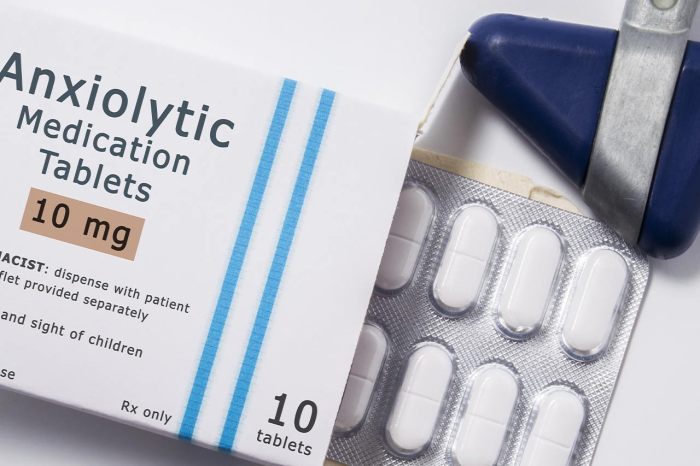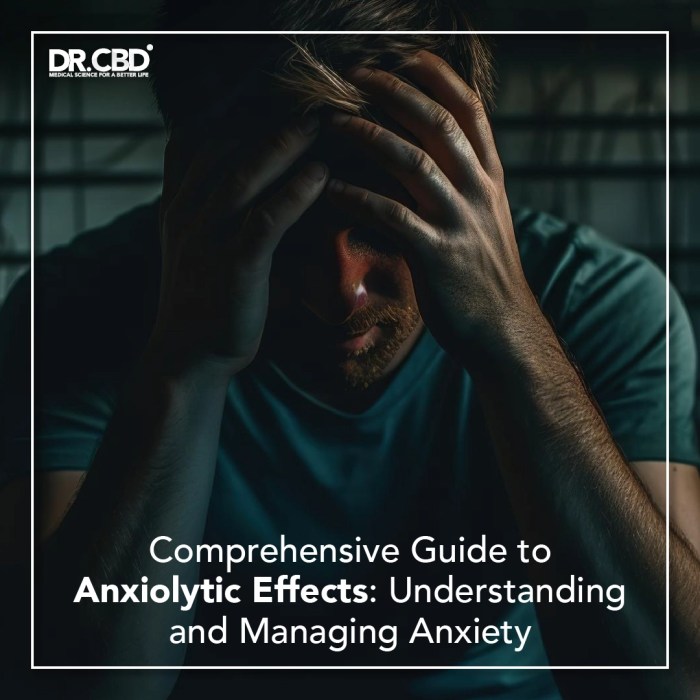Anxiolytics, a class of medications designed to alleviate anxiety, play a crucial role in managing anxiety disorders. These medications work by influencing the brain’s chemical messengers, often targeting neurotransmitters like GABA, serotonin, and norepinephrine, which are associated with mood regulation and anxiety.
Beyond medication, a multifaceted approach to anxiety management includes therapies like cognitive behavioral therapy (CBT), which helps individuals identify and modify negative thought patterns and behaviors. Lifestyle changes, such as regular exercise, relaxation techniques, and mindfulness practices, can also significantly contribute to anxiety reduction.
The Role of Lifestyle Factors in Anxiety

Anxiety is a common mental health condition that can significantly impact our lives. While there are various treatments available, it’s important to recognize that lifestyle factors play a crucial role in managing anxiety. By adopting healthy habits, we can significantly contribute to our overall well-being and reduce the likelihood of experiencing anxiety.
Diet and Anxiety, Anxiolytic
A balanced and nutritious diet can have a profound impact on our mental health, including anxiety levels. Certain foods can trigger or worsen anxiety symptoms, while others can provide essential nutrients that support mental well-being.
- Processed Foods: High in sugar, unhealthy fats, and artificial ingredients, processed foods can contribute to blood sugar fluctuations, leading to mood swings and increased anxiety.
- Caffeine and Alcohol: While these substances may provide temporary relief, they can exacerbate anxiety in the long run. Caffeine can increase heart rate and trigger anxiety symptoms, while alcohol can disrupt sleep and worsen anxiety.
- Omega-3 Fatty Acids: Found in fatty fish, flaxseeds, and walnuts, omega-3 fatty acids have been shown to reduce inflammation and improve mood, potentially reducing anxiety symptoms.
- Probiotics: These beneficial bacteria found in fermented foods like yogurt and kimchi can support gut health, which is closely linked to mental well-being. Studies suggest that a healthy gut microbiome may reduce anxiety.
Sleep Quality and Anxiety
Sleep is essential for both physical and mental health. When we don’t get enough sleep or experience poor sleep quality, our bodies and minds are not able to function optimally, increasing our susceptibility to anxiety.
- Sleep Deprivation: Lack of sleep can disrupt the balance of neurotransmitters, including serotonin and dopamine, which play a crucial role in mood regulation. This can lead to increased anxiety and irritability.
- Sleep Disorders: Conditions like insomnia, sleep apnea, and restless leg syndrome can significantly impact sleep quality and contribute to anxiety.
- Stress and Anxiety: Anxiety itself can interfere with sleep, creating a vicious cycle where anxiety worsens due to lack of sleep, and lack of sleep further increases anxiety.
Physical Activity and Anxiety
Regular physical activity is a powerful tool for managing anxiety. Exercise releases endorphins, which have mood-boosting effects and can help reduce anxiety symptoms.
- Aerobic Exercise: Activities like running, swimming, and cycling have been shown to reduce anxiety symptoms by increasing heart rate and releasing endorphins.
- Strength Training: Building muscle mass can improve self-esteem and reduce stress levels, contributing to a sense of well-being and reducing anxiety.
- Yoga and Meditation: These practices combine physical movement with mindfulness, promoting relaxation and reducing stress and anxiety.
Social Support and Anxiety
Having a strong social support network is essential for managing anxiety. Social connections provide a sense of belonging, reduce isolation, and offer emotional support during challenging times.
- Friends and Family: Talking to loved ones about our anxieties can provide comfort and validation, reducing feelings of isolation and loneliness.
- Support Groups: Connecting with others who understand and share similar experiences can provide a sense of community and reduce feelings of stigma associated with anxiety.
- Therapists and Counselors: Seeking professional help can provide valuable coping mechanisms and strategies for managing anxiety. Therapists can offer guidance and support in navigating challenging emotions.
The Role of Anxiolytics in Emergency Situations
Anxiolytics, also known as anti-anxiety medications, are a class of drugs that are commonly used to treat anxiety disorders. In emergency situations, anxiolytics can be a valuable tool for managing acute anxiety episodes and providing relief to individuals experiencing intense fear or distress. However, their use in such settings requires careful consideration due to potential risks and ethical implications.
Use of Anxiolytics in Acute Anxiety Episodes
Anxiolytics can be effective in calming individuals experiencing acute anxiety episodes, characterized by intense fear, panic, and physical symptoms such as rapid heartbeat, shortness of breath, and dizziness. These episodes can be triggered by various factors, including stressful life events, medical conditions, or substance use. In such situations, anxiolytics can help reduce anxiety symptoms and promote a sense of calm.
Role of Anxiolytics in Managing Anxiety Associated with Medical Procedures
Many individuals experience significant anxiety before or during medical procedures, such as surgery, dental work, or invasive diagnostic tests. Anxiolytics can be administered to alleviate this anxiety, making the experience more tolerable for patients. By reducing anxiety, these medications can improve patient cooperation, reduce the need for sedation, and enhance the overall experience of medical procedures.
Potential Risks and Benefits of Using Anxiolytics in Emergency Settings
While anxiolytics can be beneficial in emergency situations, their use is not without risks. Some potential risks include:
- Sedation and Drowsiness: Anxiolytics can cause sedation and drowsiness, which can impair judgment and coordination. This can be particularly dangerous in emergency settings where individuals may need to make quick decisions or perform tasks requiring alertness.
- Dependence and Withdrawal: Long-term use of certain anxiolytics can lead to dependence and withdrawal symptoms. In emergency situations, it is important to use these medications cautiously and for a limited duration to minimize the risk of dependence.
- Interactions with Other Medications: Anxiolytics can interact with other medications, potentially leading to adverse effects. It is crucial to inform healthcare providers about all medications being taken before administering anxiolytics.
- Paradoxic Reactions: In some cases, anxiolytics can cause paradoxical reactions, leading to increased anxiety or agitation. This is more common in individuals with underlying mental health conditions or substance use disorders.
Despite these risks, anxiolytics can offer significant benefits in emergency settings. They can:
- Reduce Anxiety and Distress: Anxiolytics can effectively reduce anxiety symptoms, providing immediate relief to individuals experiencing intense fear or panic.
- Improve Patient Cooperation: By reducing anxiety, anxiolytics can enhance patient cooperation during medical procedures, making it easier for healthcare providers to perform necessary interventions.
- Promote Calm and Stability: In emergency situations, anxiolytics can help promote a sense of calm and stability, allowing individuals to cope with stressful events more effectively.
Ethical Considerations Related to the Use of Anxiolytics in Emergencies
The use of anxiolytics in emergency settings raises several ethical considerations. It is important to ensure that:
- Informed Consent: Whenever possible, patients should be informed about the risks and benefits of anxiolytic medication before administration.
- Least Restrictive Option: Anxiolytics should only be used when other less restrictive options, such as supportive counseling or behavioral interventions, have been considered and deemed insufficient.
- Monitoring and Evaluation: Patients receiving anxiolytics in emergency settings should be closely monitored for adverse effects and the medication’s effectiveness.
- Respect for Autonomy: Patients should be empowered to make decisions about their own care, including whether or not to receive anxiolytic medication.
The Role of Anxiolytics in Mental Health Treatment

Anxiolytics play a crucial role in the comprehensive treatment of anxiety disorders. While not a standalone solution, they can be effectively integrated with other therapeutic approaches to manage anxiety symptoms and improve overall well-being.
Integration with Other Mental Health Therapies
Anxiolytics are often used in conjunction with psychotherapy, such as cognitive-behavioral therapy (CBT) or mindfulness-based stress reduction (MBSR). This combined approach addresses both the immediate symptoms of anxiety and the underlying cognitive and behavioral patterns contributing to the disorder. Psychotherapy helps individuals identify and challenge negative thoughts, develop coping mechanisms, and change their behavioral responses to anxiety-provoking situations. Anxiolytics, on the other hand, provide temporary relief from intense anxiety symptoms, enabling individuals to engage more effectively in therapy sessions and practice newly learned skills.
Managing Co-occurring Mental Health Conditions
Anxiety disorders frequently co-occur with other mental health conditions, such as depression, post-traumatic stress disorder (PTSD), and substance use disorders. Anxiolytics can be helpful in managing anxiety symptoms associated with these co-occurring conditions, improving overall treatment outcomes. For example, in individuals with PTSD, anxiolytics can reduce the severity of panic attacks and flashbacks, facilitating the effectiveness of trauma-focused therapy.
Preventing Relapse in Anxiety Disorders
Anxiolytics can play a role in preventing relapse in anxiety disorders by maintaining symptom control and reducing the risk of future episodes. However, it’s important to note that long-term use of anxiolytics can lead to dependence and withdrawal symptoms. Therefore, a gradual reduction in medication dosage is often recommended under the guidance of a healthcare professional.
Challenges Associated with Managing Anxiety Disorders Using Anxiolytics
While anxiolytics can be beneficial in managing anxiety, there are potential challenges associated with their use. These include:
- Dependence and Withdrawal: Long-term use of anxiolytics can lead to dependence, and abrupt discontinuation can result in withdrawal symptoms, such as anxiety, insomnia, and seizures.
- Side Effects: Anxiolytics can cause side effects such as drowsiness, dizziness, and impaired coordination.
- Interactions with Other Medications: Anxiolytics can interact with other medications, increasing the risk of side effects or reducing the effectiveness of other treatments.
- Tolerance: Over time, the effectiveness of anxiolytics may decrease, requiring higher doses to achieve the desired effect.
- Abuse Potential: Some anxiolytics have abuse potential, particularly benzodiazepines.
Understanding the intricate interplay between anxiety disorders, brain chemistry, and treatment options is essential for developing effective management strategies. Whether through medication, therapy, lifestyle modifications, or a combination of approaches, individuals can find relief and improve their quality of life.
Anxiolytics are medications used to treat anxiety, and while they can be very helpful, it’s important to understand the potential side effects. Seroquel, for example, is an antipsychotic that is sometimes prescribed off-label for anxiety, but it’s crucial to consult with a healthcare professional to determine the appropriate seroquel dosage and to manage any potential risks. Ultimately, finding the right anxiolytic treatment plan requires careful consideration and personalized care.